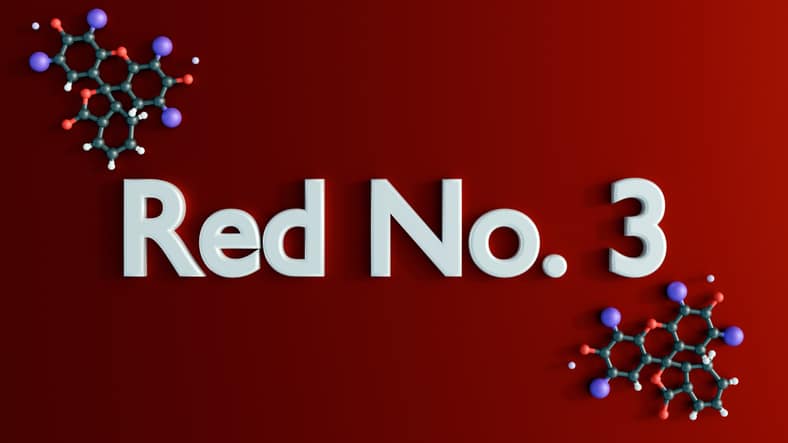fda
HipHopWired Featured Video
The Food and Drug Administration (FDA) has issued a ban on red dye No. 3, a popular food additive used in food, drinks, and some drugs. The FDA established decades ago that red dye No. 3 had links to certain types of cancer and will no longer be used in the United States.
The FDA issued a constituent update this past Wednesday (Jan. 15) stating the agency’s decision to ban the use of the food additive, citing the “Delaney Clause” from the Federal Food, Drug, and Cosmetic Act (FD&C Act).
From the FDA:
The FDA is revoking the authorization for the use of FD&C Red No. 3 as a matter of law, based on the Delaney Clause of the Federal Food, Drug, and Cosmetic Act (FD&C Act). The FDA is amending its color additive regulations to no longer allow for the use of FD&C Red No. 3 in food and ingested drugs in response to a 2022 color additive petition. The petition requested the agency review whether the Delaney Clause applied and cited, among other data and information, two studies that showed cancer in laboratory male rats exposed to high levels of FD&C Red No. 3 due to a rat specific hormonal mechanism. The way that FD&C Red No. 3 causes cancer in male rats does not occur in humans. Relevant exposure levels to FD&C Red No. 3 for humans are typically much lower than those that cause the effects shown in male rats. Studies in other animals and in humans did not show these effects; claims that the use of FD&C Red No. 3 in food and in ingested drugs puts people at risk are not supported by the available scientific information.
The Delaney Clause, enacted in 1960 as part of the Color Additives Amendment to the FD&C Act, prohibits FDA authorization of a food additive or color additive if it has been found to induce cancer in humans or animals. This is not the first time the agency revoked an authorization based on the Delaney Clause. For example, in 2018, the FDA revoked the authorization for certain synthetic flavors based on the Delaney Clause in response to a food additive petition.
Red dye No. 3 is a synthetic food dye derived from petroleum and erythrosine is its true chemical name. The dye isn’t used as widely as other dyes but appears in candies, cakes, cookies, frozen desserts, and ingested drugs. Food manufacturers will have until January 15, 2027, to eliminate the dye from their products. Comparatively, drug companies have until January 18, 2028, to do the same.
—
Photo: Getty
HipHopWired Featured Video
Source: wisely / Getty
As COVID-19 case numbers across the country begin to climb again, the federal government has given the go-ahead for two new boosters for the fall months.
According to reports, the Food and Drug Administration approved two new reformulated vaccine shots for COVID-19 from Pfizer-BioNTech and Moderna. The Centers for Disease Control and Prevention could guide eligibility and the distribution of the shots as early as Tuesday (September 12th) after a meeting of the Advisory Committee on Immunization Practices. If the green light is given, CDC Director Dr. Mandy Cohen could sign off to let vaccinations begin immediately.
These new mRNA vaccine shots differ from the most recent booster which was released last fall to combat the Omicron variant of Covid-19. That shot was bivalent, protecting individuals against the original version as well as the BA.4 and BA.5 variants comprising Omicron. The new ones will be monovalent, specifically crafted for protection against the XBB.1.5 variant. That variant, an offshoot of Omicron, appeared earlier this year but has given way to a newer dominant variant, EG.5.
Medical experts state that the new booster shots would protect against the EG.5 variant and other recently developed strains such as the BA.2.86 which has been showing up recently. There is also consideration for a third booster shot from Novovax, which would differ from these other two as it is protein-based and works differently. The new shots are focused solely on the new variants and don’t have full protection against the original version of Covid-19. “Our immune system, when we have seen something, is biased to seeing that again,” Columbia University Dr. David Ho said. “So if you include the original components, the immune system will react mostly to the original component and not to the new version of the virus.”
Once approved, drugstore chains such as Walgreens and CVS are ready to make the boosters available to the public. This time around, the cost of the shots will be negotiated by government groups such as Medicate and private insurance companies. Those with private or public health insurance should have no obstacles to getting a booster if the provider is in their network. For those uninsured, there is a “bridge” program that might help get them to get vaccinated for free until next year.
HipHopWired Radio
Our staff has picked their favorite stations, take a listen…
-
Pages

 State Champ Radio
State Champ Radio 


